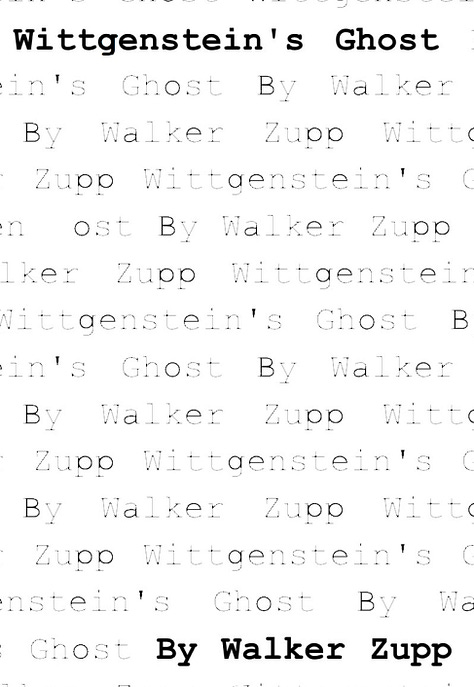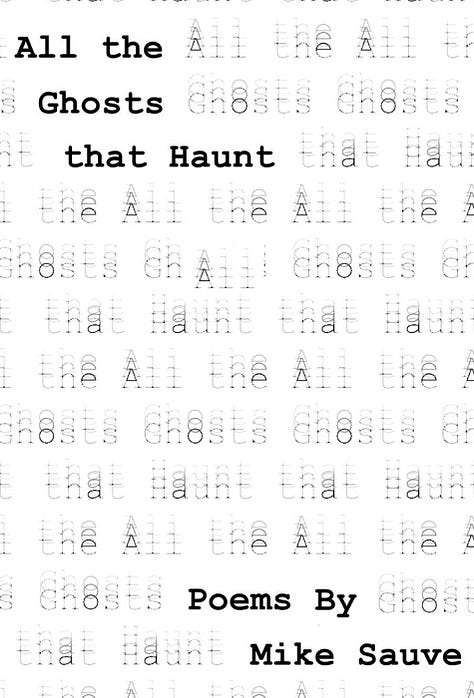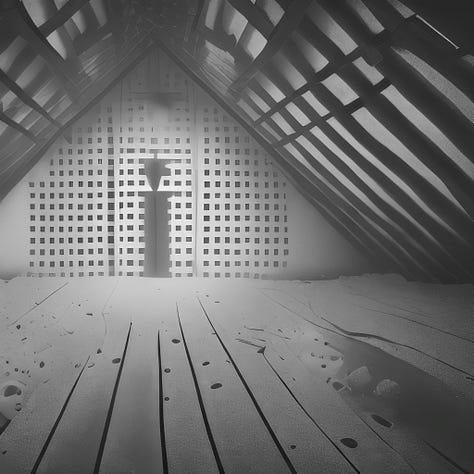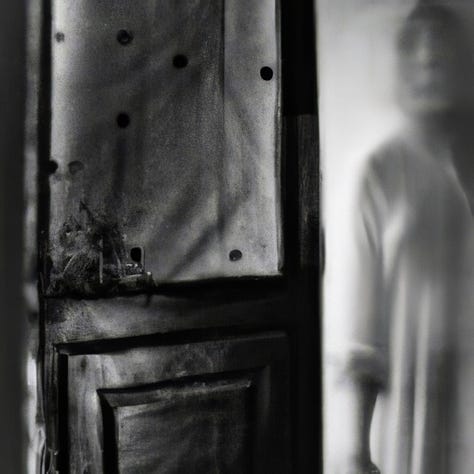It’s been my pleasure to work with Walker Zupp and D.F. Lewis for this new slate of ghosTTruth books:
Walker’s Wittgenstein’s Ghost
Lewis’ The Ghosthunter
My own All the Ghosts that Haunt
The launch is this Sunday at 3pm and can be accessed at this link. Here are some introductory remarks.
These books are about ghosts of meaning and ghosts of process: The Ghosthunter as writer and the writer as ghost hunter. Until one day, not unlike this gloomy Sunday, we’re disappointed to greet the descendant most likely to bring about our descendance from atop the perceptual dominance hierarchy—the large language model as the overeager séance conductor, blargling on in a voice about as otherworldly as the Wizard of Oz’s claptrap.
1. Elusive Truth
In The Ghosthunter, the narrator’s search for ‘real’ ghosts is frustrated by “disappointing ghosts” that are never The Real Mucky, whatever that might mean to you. Similarly, Wittgenstein’s Ghost shows how truth in language is subjective and constructed, shaped by interpretation rather than objective solidity. For Lewis, it’s the elusive, fleeting nature of ghosts that refuse to be “nailed down”; for Zupp, truth is something framed, represented, and skewed by language; in my poems, truth is trained on these very contextual awarenesses to dependency-parse the word sense of words such as compartmentalization, depersonalization, and etherealization, whatever such words may have meant to rue.
2. Representation and Perception
Lewis’ narrator encounters ghosts only indirectly, glimpsed “out of the corner of the eye” or imagined through “forced pareidolia.” The descriptions of Zupp’s WRITER character are shaped by perspective and intention—like a lawyer selectively representing a client, ignoring what doesn’t fit his preferred patterns. My own echolaliac LLMs are like mummies embalmed and embedded into patterns recognized only to be catastrophically forgotten.
3. Constricting Ghosts Constructing Reality
In The Ghosthunter, the narrator is complicit in creating the ghosts he seeks, often fabricating them from his own perceptions. In Wittgenstein’s Ghost, the writer presents the world not as it is, but as they choose to represent it. In All the Ghosts That Haunt, the Large Language Model is a blind necromancer, trained on countless pieces of human expression that it reassembles without comprehension. As Warren Zevon writes in Accidentally, Like a Martyr, “Tell me, which is worse?”
In these recursive layers of thought overfit—in the Large Language Modality, classroom or courtroom, or in the Weirdmonger’s wares, reality offers only some hauntological beliefs and Sleep State Misconceptions. These ghosts disappoint the child or the mystic who looks for the one who’s looking behind the Wizard’s curtain, in that they aren’t even certain in and of themselves, except, so to speak, from a graven point of view, leaving us with only the haunting séance that ghosts are what we’ve made ourselves.











